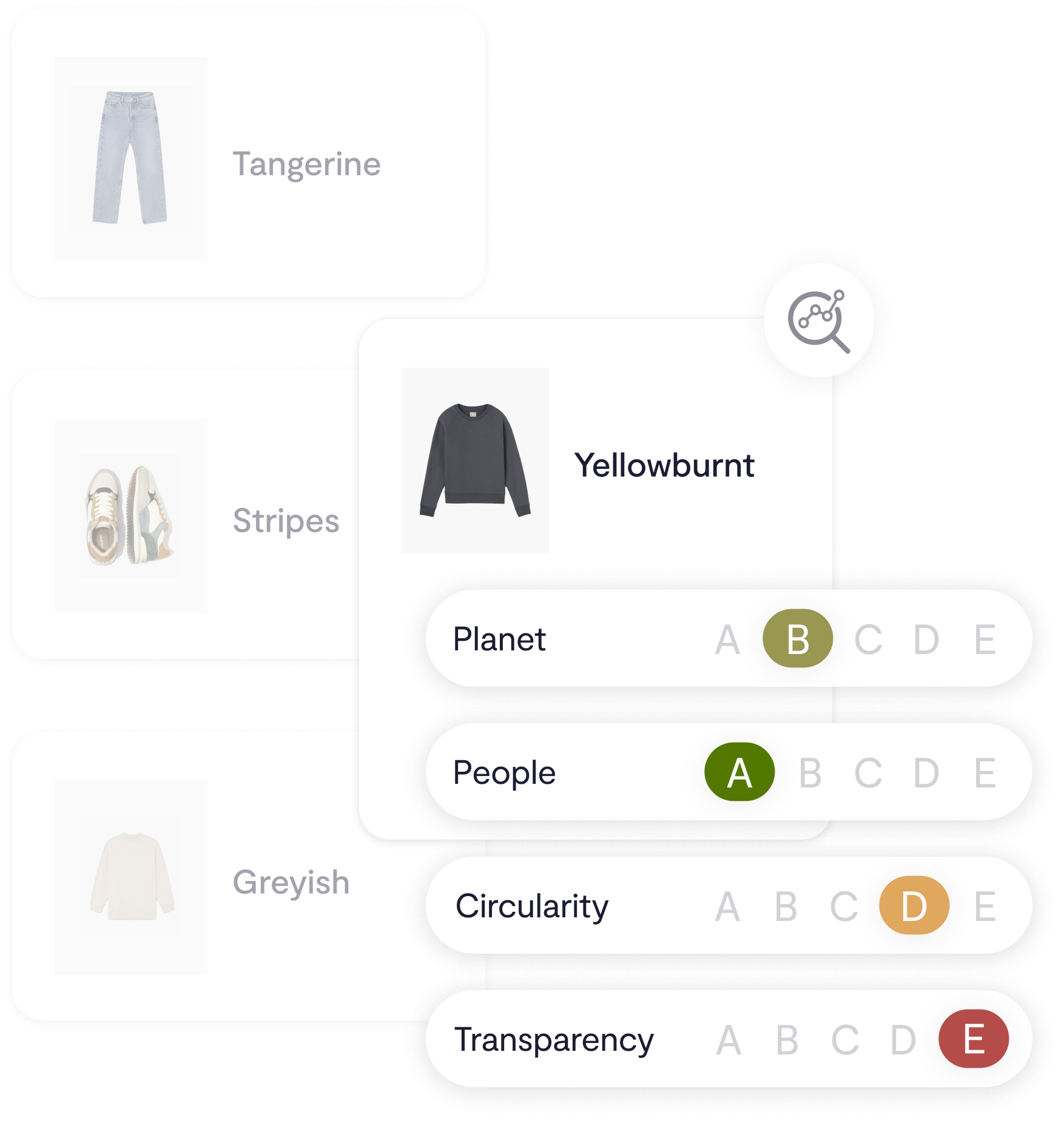The fashion industry is in a moment of significant change. As the mandate of the EU Parliament comes to an end, the year 2023 has been marked by the urgency to advance legislative processes, especially those related to the EU Green Deal. By the end of 2024, everything indicates that self-regulation regarding sustainability will no longer be a viable option. In this context, we explore the nine European regulations set to influence the fashion industry in 2024.
By the end of 2024, everything indicates that self-regulation regarding sustainability will no longer be a viable option
Both the regulations approved in 2023 and those planned for the coming months impose stricter demands in terms of sustainability on the fashion industry in Europe. However, the effects of these legislative changes are not limited to European organizations. Suppliers outside the EU, such as product and material manufacturers, are also under pressure to meet the new requirements, possibly ahead of official deadlines due to production times.
Take note of the legislative developments that as a professional in the fashion industry you should have in your sights in the coming months:
European Corporate Sustainability Reporting Directive
In January 2023, the EU Corporate Sustainability Reporting Directive (CSRD) was launched. These reporting requirements will be phased in for different types of businesses. The first companies must comply with this regulation in 2024, for reports that are published in 2025.
By expanding corporate sustainability reporting obligations to cover social, environmental and governance issues, the CSRD improves transparency, ensuring a more comprehensive and uniform approach to sustainability reporting in the textile sector.
If you want to know exactly what information you will need to include in Corporate Sustainability Reports, we have a specific article on it. We look at who will be affected by this directive, the different categories these standards fall into, and how to address all CSRD criteria through a single sustainability platform.
The first companies must comply with CSRD in 2024, for reports that are published in 2025
Empowering Consumers to Green Transition Directive
The Empowering Consumers to Green Transition Directive is a key component of the EU Communications Framework, designed to tackle misleading claims and greenwashing. This directive updates the Unfair Commercial Practices Directive, which sets out criteria for what constitutes a misleading generic claim.
Institutions are expected to officially adopt the final text of the Empowering Consumers to Green Transition Directive during the first quarter of 2024
Closely related to the Green Claims Directive, this revised version shows a stricter approach to different message types, indicating a significant change in how textile companies can talk about their sustainability performance and the impacts of their products.
You can review the final text that institutions are expected to officially adopt during the first quarter of 2024. It is anticipated that the new requirements will begin to apply approximately in the third quarter of 2026.
Green Claims Directive
This directive, together with the Empowering Consumers Directive, sets out detailed requirements on how companies must justify and communicate their environmental impacts and performance to avoid misleading practices.
Progress on Green Claims Directive is expected to continue after the EU elections in June 2024
The Green Claims Directive specifies that any environmental claim must be supported by robust evidence of sustainable practices throughout the entire value chain. Before any claim is used, it should be verified by a competent national authority to assess its validity in marketing. In addition, it proposes more rigorous criteria for environmental labeling systems.
The European Commission published this proposal in March 2023 and is currently in the legislative process. Progress is expected to continue after the EU elections in June 2024.
Ecodesign for Sustainable Products Regulation
The Ecodesign for Sustainable Products Regulation (ESPR) aims to establish a comprehensive legislative framework that ensures that all products sold on the EU market are compatible with a circular economy, climate neutral and resource efficient. This regulation is expected to be officially adopted in spring 2024.
Textile products are expected to be the first to comply with this regulation. The minimum ecodesign criteria for each group of products cover aspects such as durability, reuse, reparability, restrictions on substances that hinder circularity, or recycled content, among others. In addition, the implementation of information requirements and the creation of a Digital Product Passport is planned. Although the exact date of their launch is not yet defined, the standards are expected to be published towards the end of 2025.
The Ecodesign for Sustainable Products Regulation is expected to be officially adopted in spring 2024
Textile companies that destroy unsold products must report annually the quantities discarded and their reasons. The legal text explicitly prohibits the destruction of clothing, accessories and footwear.
Corporate Sustainability Due Diligence Directive
Aiming to make companies more responsible for the social and environmental impacts of their operations, the Due Diligence Directive is one of the EU’s main strategies to accelerate corporate commitments to Europe’s sustainability goals.
The Corporate Sustainability Due Diligence Directive is expected to be officially adopted during the first quarter of 2024
This regulation establishes requirements that include risk assessment of possible negative impacts on human rights, the environment and governance linked to operations and business relationships. Furthermore, it implies the prevention and reduction of these impacts identified in the risk assessment. It also requires verifying the effectiveness of measures to prevent and reduce them, in addition to evaluating the accuracy of disclosures.
The EU institutions reached a political agreement by the end of 2023 and are currently holding technical meetings to finalize the legislation. The directive is expected to be officially adopted during the first quarter of 2024.
Proposal for a Ban on Goods Made Using Forced Labor
The EU proposal to ban products made with forced labor imposes a complete restriction on the entry of these goods into the EU market. This initiative establishes a framework to investigate forced labor practices in supply chains, prohibiting the import and export of such products and their components within EU borders. This ban extends to products manufactured both inside and outside the EU and applies to economic operators of all sizes, including SMEs.
The Council is expected to adopt its position about the Proposal for a Ban on Goods Made Using Forced Labor in early 2024
In October 2023, the European Parliament reached an agreement on this matter and the Council is expected to adopt its position in early 2024.
Packaging and Packaging Waste Directive
As a key element of the Circular Economy Action Plan, the European Commission embarked on a broad review of its Packaging and Packaging Waste Directive, transforming it into a regulation.
Legislative work on this matter is currently underway and is expected to be completed before the end of the mandate of the current European Commission. At the end of 2023, the EU Council adopted its negotiating position on new regulations that seek to promote more sustainable packaging in the EU. These requirements include the obligation for all packaging to be recyclable and the reduction of substances of concern to a minimum. Likewise, labeling standards are established to improve information aimed at consumers, with the aim of guaranteeing the safety and sustainability of packaging.
Waste Framework Directive
In July 2023, the European Commission presented a specific amendment to the Waste Framework Directive, with a particular emphasis on addressing the management of textile waste. This proposal is aligned with the EU Strategy for Sustainable and Circular Textiles, aimed at promoting a more circular approach in this area.
However, the current proposal raises certain ambiguities, especially regarding the reporting requirements for companies. Harmonization at EU level is required, accompanied by clear and comprehensive guidelines. As textile producers operate in multiple member states, it’s crucial that they can effectively manage product registration across the EU through a unified system for all countries.
In March 2024, members of the European Parliament will vote on Parliament’s position on this proposal.
Waste Shipment Regulation
The Waste Shipment Regulation, responsible for regulating the transport of waste within and outside the EU, is expected to be finalized in early 2024.
This regulation covers both the export and import of waste from the EU to third countries and shipments of waste, both hazardous and non-hazardous, between EU member states. One of its provisions specifically prohibits the export of hazardous waste from OECD and EU countries to nations that do not belong to these organizations.
The Waste Shipment Regulation is expected to be finalized in early 2024
These are some of the regulations that will shape the destiny of the fashion industry in Europe in the coming months. A set of standards that seek the sustainable transformation of a sector whose participation and responsibility are essential to achieve the environmental and social objectives set by the European Commission.
The EU elections in 2024 will mark a crucial moment for the future of the European Union, with significant implications for textile companies operating on its territory.
In BCome’s 2024 Sustainability Handbook, we discuss the time pressures that the textile industry faces due to new laws. This year marks the shift from creating these laws to putting them into action. Starting in April, much of the final legislation will be published, offering businesses clear guidelines to adjust and take necessary action. At BCome we can help you meet the requirements established so that your company complies with these new regulations. Our mission is to simplify the complexity behind sustainability, shall we talk?









